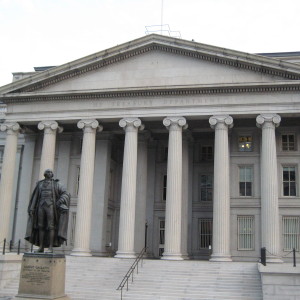Now might be the time for a “citizens’ solution” to the debt ceiling crisis.
It is happening again: news that the United States Government is inching ever closer to the debt ceiling that has caused so many contentious debates over the past four years.
For the past 13 months, Secretary of the Treasury Jack Lew has had and used the authority to take any and all measures to ensure our financial solvency. That authority, however, ends on March 15 and Lew has informed Congress that the United States will hit its debt limit on March 16. After March 15, Lew and his team have the ability to use accounting means to ensure the full faith and credit of the United States until sometime this fall, but the fact that we are here again at this juncture speaks volumes.
Continuing to kick the can down the road means our leaders are going to have to continue to deal with this issue on a rolling basis. Not only that, but citizens, businesses, and investors will again sit on the sideline while Washington plays games with our economic prosperity.
It is not a stretch to say that the American people are worn out, lurching from crisis to crisis. Not only that, our elected leaders have an oath to ensure our country’s solvency, and they must work together to do so.
Both Senate Majority Leader Mitch McConnell and House Speaker John Boehner have vowed not to lead the nation toward default again, a promise they should do everything to keep.
Of course, we’ve seen these promises before as well. In the past, McConnell has gone on record in favor of holding the government hostage to achieve his own ends; including cutting funding to programs and drastically cutting spending.
More recently, appearing on Face the Nation, he sounded much more conciliatory to finding a long-term, non-hostage-based solution. “Well, the debt ceiling will be handled over a period of months,” McConnell said. “I made it very clear after the November election that we’re certainly not going to shut down the government or default on the national debt. We will figure some way to handle that.”
What is missing from McConnell’s answer is a real way to — as he says — handle the crisis.
But if both McConnell and Boehner speaking honestly, then the opportunity is ripe for a real non-partisan, American solution.
To do that, here’s one option: Rather than let the debt-ceiling drama play out again in real time on cable television, have the leadership from both chambers and all parties lock themselves in a room and not emerge until they have a real plan to balance the budget and reduce the deficit once and for all. And here’s something they can use to help speed their deliberations – the budget tools developed by the Committee for a Responsible Federal Budget (CRFB), a bipartisan, non-profit organization created to raise the public’s awareness about budget issues.
The CRFB’s budget tools empower every citizen with the power to create options to reform Social Security, stabilize the debt and reduce the deficit. These tools also have another advantage: they present the budget choices our country must make to remain solvent, in stark mathematical terms and with no escape behind political rhetoric.
I have used the tools numerous times over the years, and each time it becomes harder and harder to find a balanced solution. This is partly the consequence of years of delay, but it is also inherently the point: everyone must bear the weight of real, long-term solutions. After all, that is why we sent these 536 people to Washington: to make tough choices.
I recently ran through the Social Security reform tool and was able to make the entitlement program solvent for the next 75 years. This came with a short gap, a slight reduction in benefits, and a tax increase. It is proof positive that to find real solutions, everyone must share in the pain.
As this debt ceiling battle heats up yet again, imagine the results if our leaders couldn’t go home until they reached a true bipartisan solution.
Why not encourage your representatives and senators to take this approach? Better yet, why not use the budget tools available to devise a “citizens’ solution” to a problem Congress has yet to fix? Democracy and the economy can only be better for it.
This piece first appeared on Republic 3.0.

